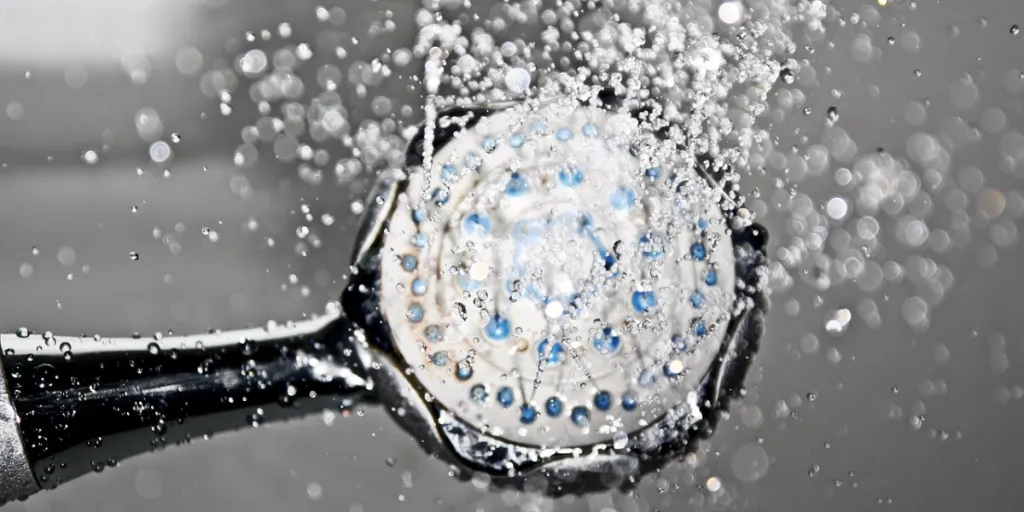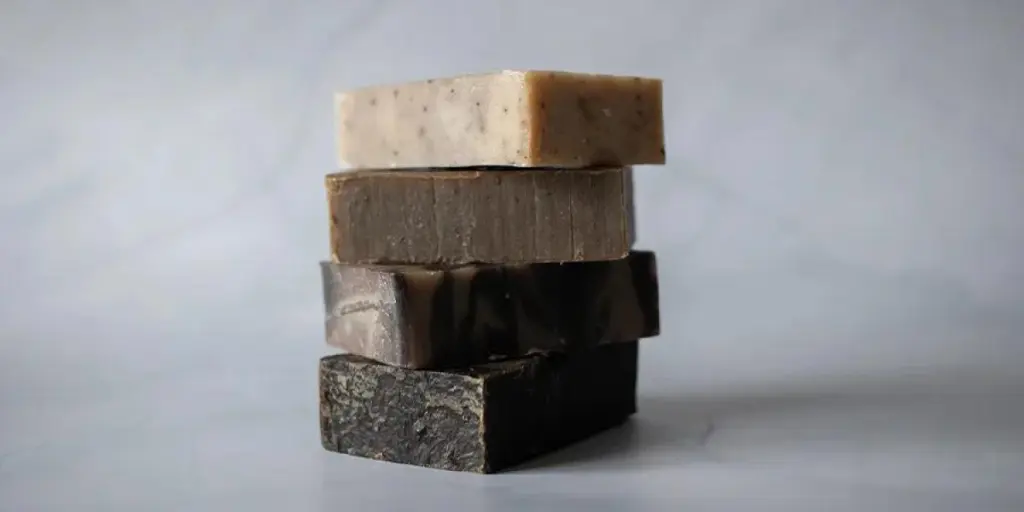Many people are concerned about the water quality that flows from their showers. The desire to wash yourself with clean, chemical-free water makes them look for better alternatives to traditional shower heads. Recently introduced shower filters are special devices designed to filter the impurities that contaminate the water before it reaches users.
This article takes a deeper look at the market of shower filters, covering the benefits, types, and selection methods for businesses to make informed decisions.
Table of Contents
What are shower filters?
Overview of the global shower filter market
Materials used in shower filters
Advantages of shower filters
Choosing the right filter for shower heads
Conclusion
What are shower filters?

Shower filters are tools or devices installed in shower heads. Some of these filters sit between the shower head and the water hose. The primary reason for these filters is to reduce impurities like calcium, zinc, chloramine, chlorine, volatile organic compounds (VOCs), notoriously hard water, and heavy metals from reaching users’ skin and hair.
The reasons why people choose a particular shower filter over the others may vary. Some homeowners may try to avoid bacterial growth, while others are fed up with dry hair. High levels of minerals like calcium and magnesium could make hair dull and clog the skin pores. Some filter manufacturers are now promoting their products as capable of neutralizing odors and bringing superior hydration for the users.
Some even market their shower filters as a solution to restore the natural beauty of one’s skin and hair. As the wellness industry expands, people are interested in investing in products known for their excellence. Manufacturers may come up with newer and refined products to enhance consumer satisfaction. The next section takes a peek at the current market size of shower filters so businesses can have a clearer perspective!
Overview of the global shower filter market
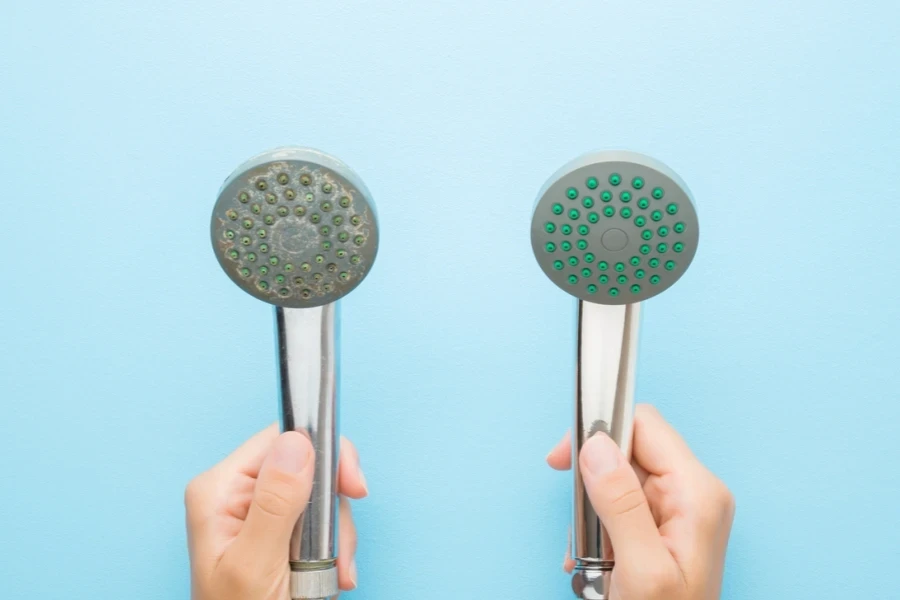
The global shower filter market was worth about USD 0.5 billion in 2023. It is expected to grow to USD 1.314 billion by 2032. This growth represents a compound annual growth rate (CAGR) of around 9.5% from 2023 to 2032. Technologies like upflow designs, advanced filtration systems, and a unique blend of premium filtration media are increasing market demand.
North America leads the shower filter market. People are more aware of water quality and its health benefits. High incomes and good infrastructure make these products popular. Europe comes next, with strict water rules and a growing demand for eco-friendly options.
In Asia-Pacific, rapid urban growth and concern about waterborne diseases drive sales. China and India play a big role here. The Middle East and Africa are growing steadily as they work to improve water quality. Latin America also shows promise with better living standards and infrastructure.
Materials used in shower filters
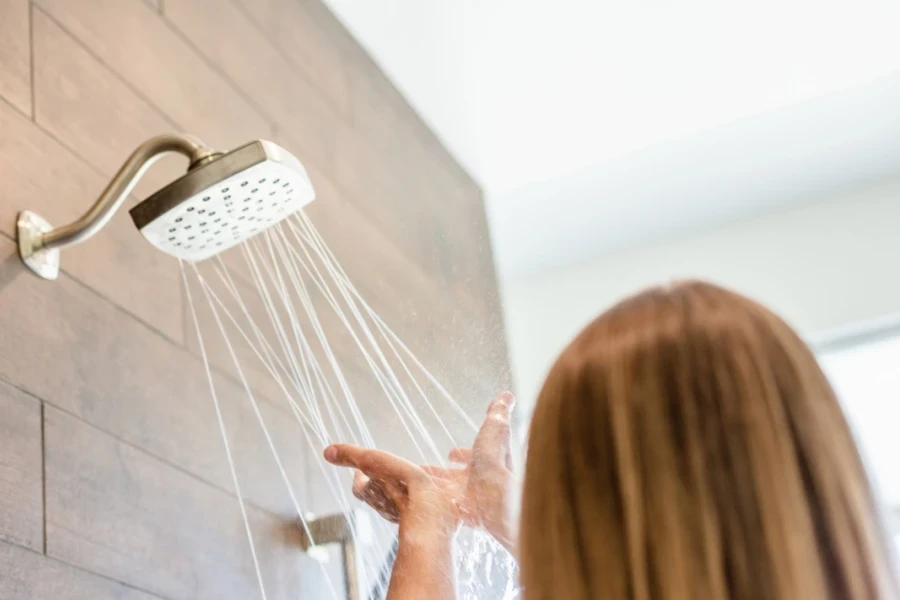
Filtration media can affect the effectiveness of shower filters. It’s important to choose a filter head that addresses the contamination concerns of a specific water supply. Below, we’ve taken a look at some of the standard filtration technologies and the shower experience they provide:
Kinetic degradation fluxion (KDF)
It is an alloy of copper and zinc that works through a redox reaction. The process changes harmful contaminants like chlorine into chloride ions. It also reduces the heavy metals in municipal water, like lead and mercury. It also helps inhibit bacterial growth. While KDF is highly effective at removing chlorine and metals, it has a limited impact on hardness minerals. However, it performs well even at high water temperatures.
Zeolite
Zeolite is a microporous mineral made of aluminosilicate, found naturally or synthetically. It works by trapping contaminants like heavy metals, ammonia, and some organic compounds through ion exchange and physical adsorption. Even though it is effective for heavy metals and ammonia, it is less useful for removing chlorine or addressing water hardness.
Carbon block
Carbon block filters are made from compressed activated carbon. These are often sourced from coconut shells, carbon, coal, or wood. They work through adsorption, where contaminants stick to the carbon’s porous surface. This makes them effective at removing chlorine and organic compounds and improving water quality. Although this filtration method is great for chlorine and some VOCs, they are less effective at removing minerals like calcium and magnesium.
Vitamin C
Vitamin C filters are often used in premium water filter systems—usually at places where there are a number of bathrooms, like clubs or water parks. We all know that vitamin C is a natural compound in citrus fruits. The filters use ascorbic acid and react with chlorine and chloramines, breaking them into safer substances. These filters are excellent for removing chlorine and promoting healthier skin and hair. However, they are ineffective at addressing hard water minerals or heavy metals.
Calcium sulfite
Calcium sulfite is a synthetic chemical compound commonly used in industrial and filtration applications. It works by reacting with chlorine and converting it into harmless salts. This makes it highly effective at removing chlorine and improving water quality, even at high temperatures. Like some others in the list, calcium sulfite fails to remove heavy metals or hard water minerals.
Maifan stone
Maifan stone is a mineral-rich stone found in Chinese mountain regions. It slowly releases trace minerals into the water while absorbing some contaminants. It claims to add beneficial minerals, balance pH, and remove impurities. It is not a primary filtration method for chlorine or heavy metals and is unlikely to make a noticeable difference in water quality.
FIR ceramic balls
FIR ceramic balls are small ceramic spheres made from a proven blend of mineral-rich clays and natural compounds. They are said to improve water quality by releasing far-infrared radiation, softening water, and enhancing mineralization.
The claim is that the low-level infrared energy emitted reduces water cluster size and improves absorption. But there is limited scientific evidence supporting these claims. While FIR ceramic balls may add trace minerals, their effectiveness as a standalone filter material is still uncertain.
Scanning all the available options makes it evident that the selection of shower filters should be made after considering the varieties and target market requirements. Offering a multi-stage shower filter is another option usually preferred by people who are too concerned about their sensitive skin and allergies.
As we’ve seen, none of the materials listed above can reduce mineral content, which results in a scale build-up. Installing a multi-stage shower filter could be viable for those dealing with hard tap water.
Advantages of shower filters
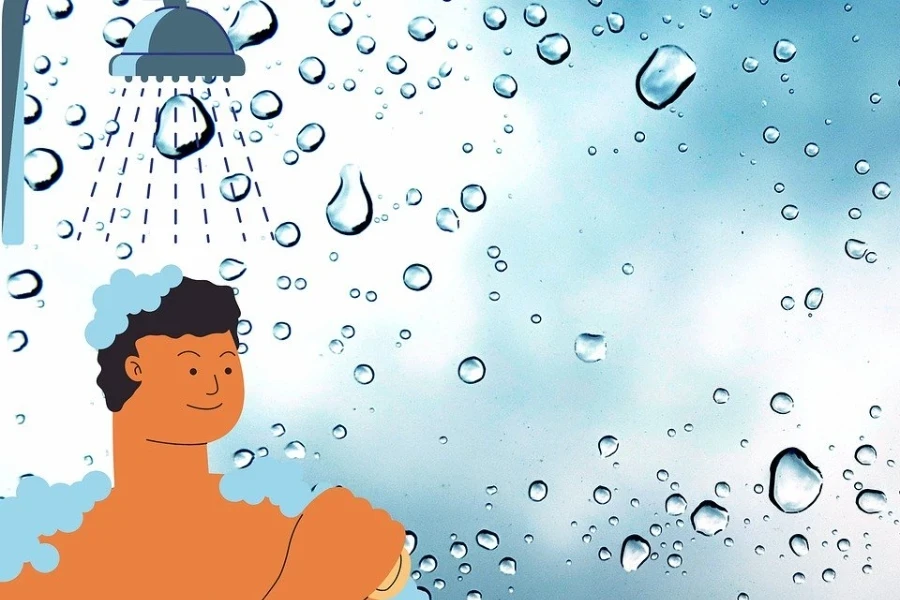
No one can deny the benefits of clean water. It is considered a blessing that could help people lead healthier lives as their bodies stay clean and there is less exposure to dirty water toxins. Nonetheless, an average home in the suburbs or an urban area fails to get clean tap water. Chlorine is often added to the municipal water supply to kill pathogens and bacteria. It ensures that the water is safe to drink and wash. It could create an opposite reaction among people with sensitive skin or respiratory issues.
A shower filter uses different technologies to alleviate these concerns. It can remove or reduce chlorine before it reaches down to the person. This provides a healthier shower experience to the users, and they can have softer hair and skin. Some steps, like installing a multi-stage shower filter and investing in top-tier filtration solutions, could reduce further impurities like sediment.
So far, it is noticeable that even premium water filter systems don’t claim to remove water hardness altogether. Businesses willing to make their filter inventory market-relevant should first get rid of old shower filters with the use of outdated technology. Instead, replace them with the cutting-edge filtration innovations available in the market.
Choosing the right filter for shower heads

Here is a list of factors to consider when selecting shower head filters:
Evaluate the filtration method
Consider the filtration tech used and its efficiency in the target market water supply. Activated carbon filters are effective when dealing with organic compounds and chlorine. On the other hand, KDF filters act upon chloramines and heavy metals. Some filters may even have multi-stage filters to improve water quality as much as possible.
Flow rate
A good shower flow rate is between 8 to 12 liters per minute. A filter with an optimized flow rate minimizes pressure loss yet offers efficient filtration. The flow rate balances when adequate water pressure is applied. Some filters may reduce the flow rate over time, especially in places with low tap water supply.
Check water quality
Keep market needs under consideration when investing in shower head filters. Common issues like a lot of chlorine in water or high quantities of hard water minerals require specific strategies. Understanding water quality helps in choosing the right products. Being specific about product selection is also important when people get itchy skin or dry hair due to the climatic conditions of their location.
Compatibility
Filters must be compatible with the existing plumbing structure and shower heads. Most shower filters are designed to fit the pipes or shower arms. They are easy to install and don’t require special tools or professional assistance.
Given how market demands keep fluctuating and new products are introduced every other day, businesses in this market need to stay in touch with the trends. Customers typically prefer products that aren’t a hassle to install, give refreshing showers, and prolong the lifespan of plumbing fixtures.
Conclusion
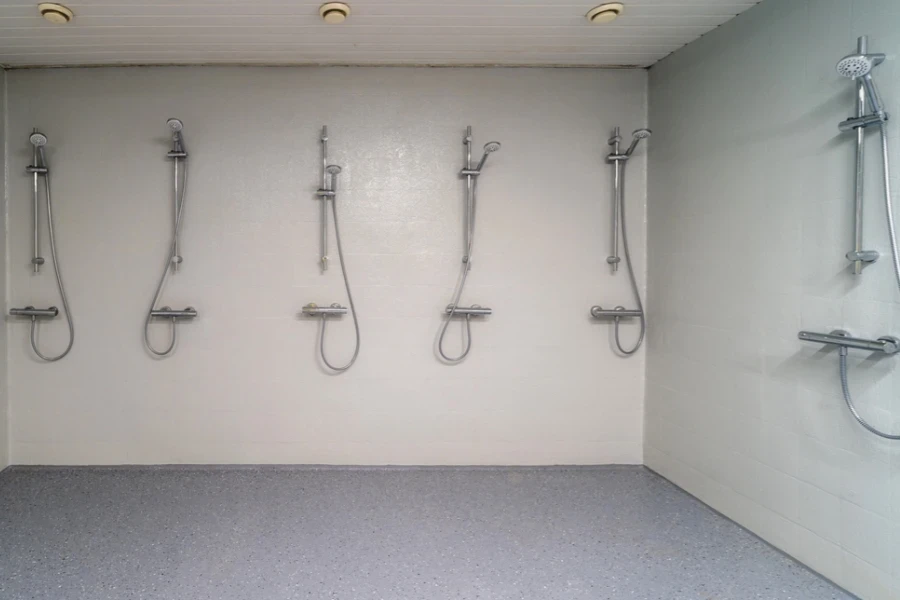
Retailers and wholesalers must identify the market gaps and customer pain points. Narrowing down the market segment and knowing the latest filtration methods could help them keep their inventories relevant. It requires constant research and clear knowledge to stay ahead of the curve. Don’t forget to check out Cooig.com to browse a vast selection of shower filters from thousands of trusted suppliers!
